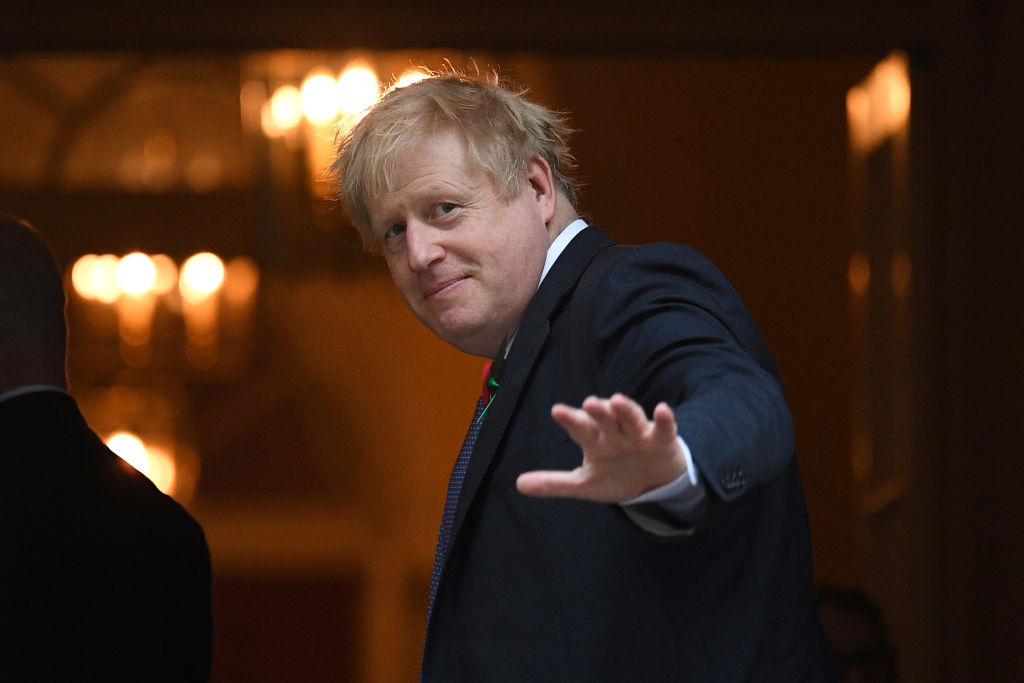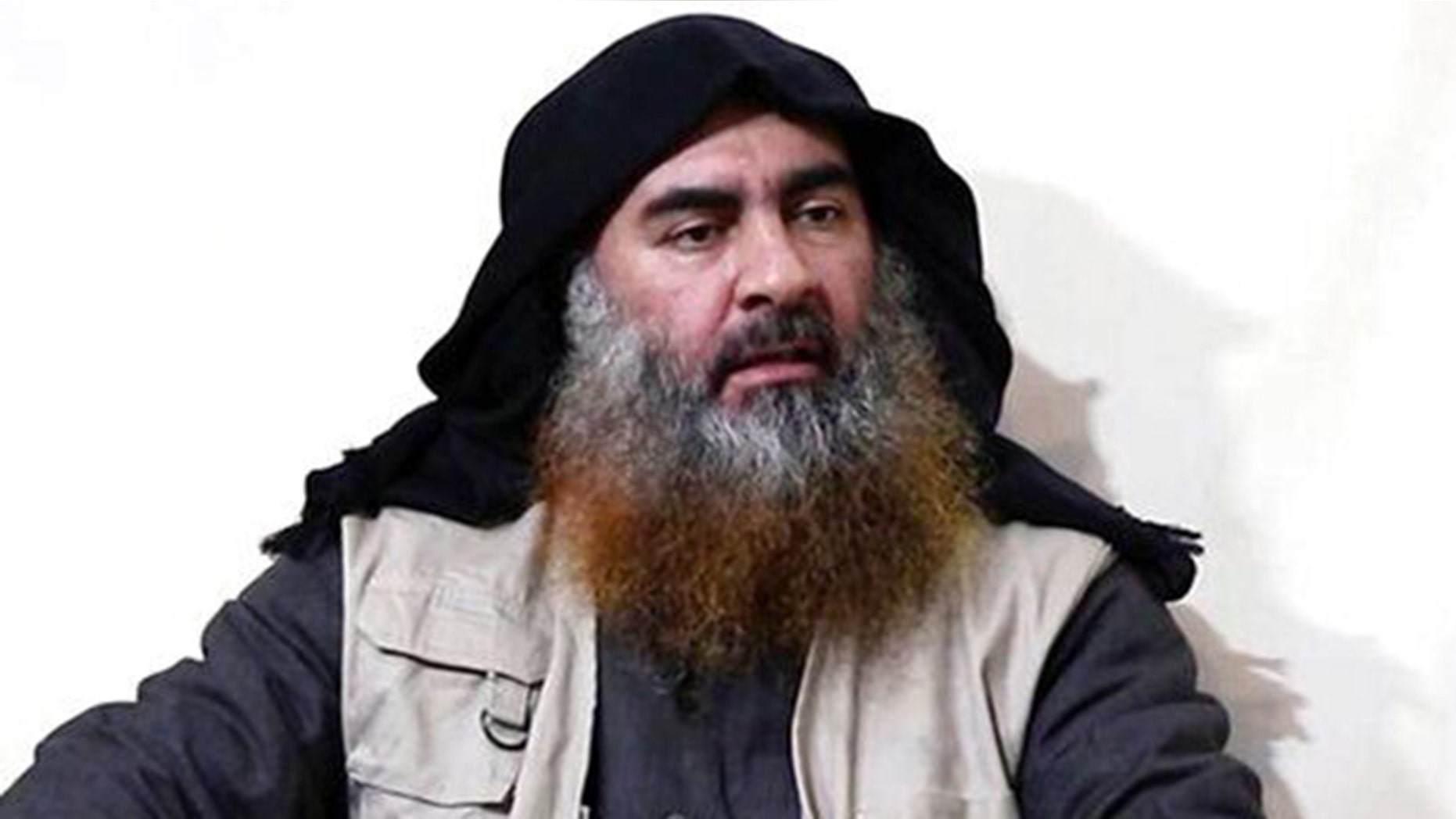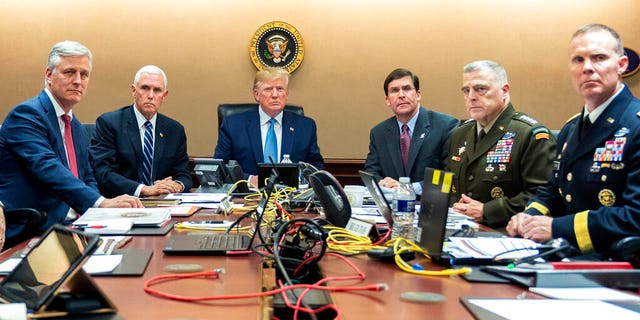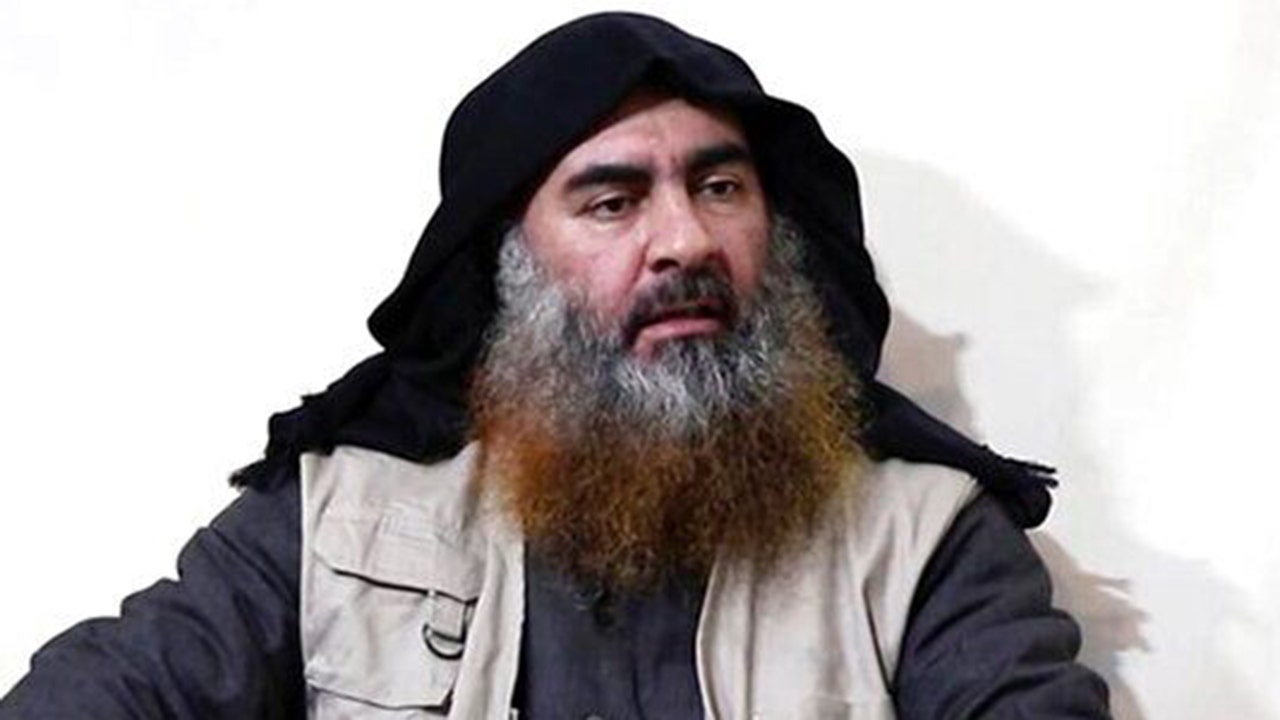From the White House Oct. 27, President Trump announced the death of Islamic State leader Abu Bakr al-Baghdadi.
President Trump on Sunday announced that Abu Bakr al-Baghdadi, the elusive Islamic State leader, died during a U.S. military operation in Syria, a major breakthrough more than five years after the militant launched a self-proclaimed caliphate that inspired violence worldwide.
"Last night the United States brought the world’s Number One terrorist leader to justice," Trump said in a televised announcement from the White House. “He was a sick and depraved man, and now he’s gone.”
The president described what he called a "dangerous and daring" nighttime operation by U.S. Special Operations forces in northwest Syria, involving a series of firefights and culminating in what he said was a retreat by Baghdadi into a tunnel. There Baghdadi detonated an explosive vest, killing himself and three of the six children he was believed to have.
[ISIS leader Baghdadi urges followers to continue attacks, storm prisons]
The high-risk operation brings a dramatic end to a years-long hunt for the man who spearheaded the Islamic State’s transformation from an underground insurgent band to a powerful quasi-state that straddled two countries and spawned copycat movements across several continents.
Trump said Baghdadi, a longtime militant who was once held in a U.S.-run prison in Iraq, had been tracked over the last two weeks to a compound in Syria’s Idlib province which was laid with tunnels. He said no U.S. personnel died during the operation but that other militants were killed.
The raid comes as the United States scrambles to adjust its posture in Syria in the wake of Trump’s decision to curtail the U.S. military mission there. Trump faced widespread criticism, including from members of his own party, when he declared earlier this month that he would pull out nearly all of the approximately 1,000 troops in Syria amid a Turkish offensive against Syrian Kurdish troops who have been the Pentagon’s main battlefield partner there. But evolving plans now call for a larger residual force that could mean a substantial ongoing campaign.
During his remarks Trump thanked officials in other nations, including Russia and Turkey, and Syrian Kurdish forces.
Al-Furqan Media/Afp Via Getty Im
A video from the Islamic State group broadcast on April 29 shows its leader Abu Bakr al-Baghdadi in an undisclosed location.
Trump said the operation had been in the works for at least several weeks, saying that earlier plans to strike had been postponed. Trump said eight helicopters ferried in American troops from an unspecified location in what he described as a risky, roughly hour-long flight.
One official, who spoke on condition of anonymity to discuss operational details, said that troops from Delta Force, an elite military unit, conducted the operation with support from the CIA and Kurdish forces. The official said that Baghdadi had been located in large part thanks to U.S. intelligence agencies intensifying their focus on Idlib province because of militants there with loose links to al-Qaeda.
In describing the importance of Baghdadi’s death, Trump named American citizens whose executions by the Islamic State first pulled the United States into a military operation against the group, including James Foley, Steven Sotloff, and Peter Kassig.
During the group’s extremist reign, many more Iraqis and Syrians were killed or brutalized. Militants also enslaved women and children from Iraq’s Yazidi minority.
The Islamic State inspired high-profile acts of violence beyond its physical territory, including major attacks in the United States and France, as well as the establishment of potent foreign affiliates in places like Libya.The Pentagon continues to conduct attacks against self-branded ISIS fighters in Afghanistan, Yemen and Somalia.
While the group no longer controls significant territory, officials say it remains a serious threat.
A native of the Iraqi city of Samarra, Baghdadi, 48, remained a reclusive figure even to his supporters. In an audio message issued last month he urged militants to launch attacks against security forces and to attempt to break imprisoned brethren out of jail.
Trump praised his military and intelligence officials for the operation, which he said he watched from the White House situation room with Vice President Mike Pence and other senior officials. He said the military had taken DNA samples from Baghdadi’s remains and had quickly conducted tests to determine his identity.
“Baghdadi was vicious and violent, and he died in a vicious and violent way, as a coward running and crying,” he said. Baghdadi’s actions during the operation could not be immediately verified.
The president acknowledged that other senior militants remained at large.
Pentagon officials have warned that the Islamic State could use the recent upheaval in Syria as an opportunity and last week Defense Secretary Mark T. Esper acknowledged that more than 100 fighters had escaped from Kurdish-run prisons.
A senior official from Iraq’s intelligence service, speaking on the condition of anonymity to discuss intelligence matters, said the arrests and interrogation of a number of people close to Baghdadi yielded up his location, which was provided to the Americans. He confirmed the location raided Saturday was one that his service had discovered.
Meanwhile, the Kurdish-led Syrian Democratic Forces, whose troops have fought alongside the United States in Syria, indicated that they too had provided intelligence for the operation.
“For five months there has been joint intel cooperation on the ground and accurate monitoring, until we achieved a joint operation to kill Abu Bakir al-Bagdadi,” its commander, Gen. Mazloum Abdi tweeted.
[ISIS leader Baghdadi makes first video appearance in 5 years]
Trump has recently been accused of abandoning the Kurds following a decision to pull back most of the U.S. forces in northern Syria that had provided a deterrent against the Turks across the border.
Omar Haj Kadour
AFP Via Getty Images
A Syrian man inspects the site of helicopter gunfire which reportedly killed nine people near the northwestern Syrian village of Barisha in the Idlib province along the border with Turkey on October 27, 2019, where “groups linked to the Islamic State group” were present.
[Islamic State leader Baghdadi resurfaces, urges supporters to keep up the fight]
Reuters Tv
Reuters
Abu Bakr al-Baghdadi appearing at a mosque in Iraq's second city, Mosul, according to a video recording posted on the Internet on July 5, 2014.
The raid targeting Baghdadi took place outside of the area where the U.S. military — which began airstrikes on Islamic State positions in Syria in 2014 and established a ground mission the following year — has focused its campaign in recent years. But there have been occasional U.S. attacks on militant targets in Idlib, including an airstrike last month.
According to Javed Ali, a former White House senior director for counterterrorism, the death of Baghdadi would be a “huge blow.” But, like the killing of al-Qaeda leader Osama bin Laden by U.S. forces in 2011, it “will not lead to strategic defeat,” he said. Ali noted that the Islamic State has proved resilient despite the physical loss of its caliphate.
Liz Sly in Los Angeles, Souad Mekhennet in Germany, Sarah Dadouch in Beirut, Kareem Fahim in Istanbul, Mustafa Salim in Baghdad and Shane Harris, Joby Warrick and Ellen Nakashima in Washington contributed to this report.
Let's block ads! (Why?)
https://www.washingtonpost.com/world/national-security/us-forces-launch-operation-in-syria-targeting-isis-leader-baghdadi-officials-say/2019/10/27/081bc257-adf1-4db6-9a6a-9b820dd9e32d_story.html
2019-10-27 14:40:00Z
52780420190780







